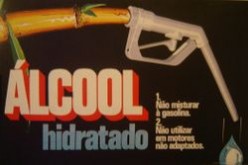Love Lane Lives
The history of sugar in Liverpool and the effects of the closure of the Tate & Lyle sugar refinery, Love Lane
Sucrose is still made of blood
Written by Ron Noon at 22:31 on Friday, December 26th 2008
This was written in August 2007

Contained in prosaic packets of sugar is a history tainted not only by the blood of African slaves but the blood of Haitians in the Dominican Republic today and Brazilians in the land of Lula da Silva. Sugar cane is an annually re-generable crop whose end product, (just like beet, the inferior and uglier alternative sucrose source), not only hooks billions to its saccharine food uses but car engines to its non-food usages. It has always been an intensely political product and now into its seventh century of global expansion, it makes oil seem a relatively new kid on the politics block.
But on the first of June when the Guardian published an essay by the Brazilian Prime Minister entitled “The wonder of sugar cane” my thoughts as an inveterate sugar buster were that hype had gone too far and lessons from history were being ignored. Lula da Silva extolled “energy cane”, the exciting bio-fuel that drives flex-fuel cars in Brazil, but camouflaged the neo-slavery conditions under which it is produced in some parts of that vast country. My lecture notes will now have added contemporary resonance on Slavery Remembrance Day not simply because of the bicentennial of the abolition of the British trade in human cargo.
Slavery in the era of the “Sugar Standard” was the indispensible handmaid of the latter which tragically is being produced in conditions that evoke the sounds of the Mayordomo’s whip. According to historian Henry Hobbhouse, perhaps three quarters of all the Africans transported across the Atlantic, “possibly as many as 15 millions out of a total of 20 million enslaved in Africa, must be debited to sugar”. Unsurprisingly Con sangre se hace Azucar was a phrase used by Cuban planters in the 19th century but the past ought to be another country and that phrase little more than an evocative museum mantra today.
What is still happening in Brazil and the recent experiences of a Belgian priest on the island where Toussaint L’Overture led a successful slave revolt against the mighty French Empire at the end of the 18th century, deny historical closure. Having vociferously spoken out against the proprietors of the sugar refineries in the Dominican Republic, Pedro Ruquoy was relocated by the church in 2005 for his own safety.
“For more than 10 years I have had the opportunity to share the life of the cutters of sugar cane who live like slaves in the huts strewn among the fields of sugar cane. My last months in the fields were very extreme: my face appeared daily on national television where I was presented as public enemy number one of the Dominican homeland, I was the object of an unprecedented slanderous campaign and the churches where I celebrated the Eucharist were attacked. All because I made the suffering of the sugar cane workers known, making known to the world that Jesus is still dying among the gentle reeds.”
That reed, which Pliny the Elder described as producing the taste of honey without the intervention of the bees, may be the most efficient collector of solar energy on the planet making the ugly mangel wurzel sugar beet precisely that, but its cultivation in many tropical cane growing areas is still blood stained. In Brazil President Lula was criticized earlier on this year for calling Brazil’s ethanol producers “national and world heroes”. On the very day Lula praised Brazil’s non-soccer playing world heroes the Labour Ministry accused a cane field owner of violating labour codes, of denying workers proper safety equipment, safe water and bathrooms as they toiled under the hot sun.
Sugar has long been the darling of the fast food and soft drinks industries because it aids overeating and “globesity”, but supremely ironic and profitable for Brazil is the added publicity about its potential, to assuage our fossil fuel addiction in the battle to arrest global meltdown. As world leader in this alternative energy source we have a lot more to learn from Lula’s eulogy to cane than technological transfers! The news that a plantation in the North of Brazil was recently raided and “ethanol slaves” released, suggests that history has a habit of not just repeating itself as farce.
Wealth not health has been the recurring theme throughout sugar’s infamous past and the bitter sweet song of fabulous wealth for “producers” and misery and sometimes death for cane workers in the field is a timely reminder for the 23rd of August that slavery like its quintessential crop are tragically not just historical topics!